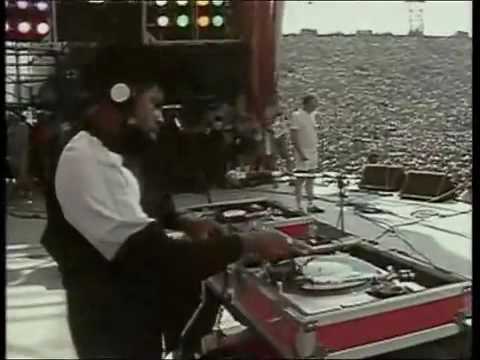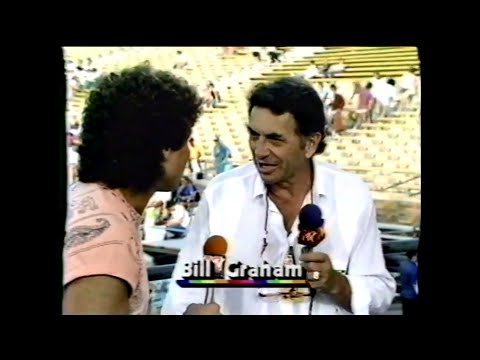"The failure of Live Aid was that, for all of its frequent invocations of Woodstock and the social activism of the '60s, it refused to place its famine--relief efforts in any sorta of useful political context, or to confront the ugly irony that this benefit for black nations was held before an almost entirely white audience."-Ken Tucker, Knight-Ridder Newspapers, 1985
Diversity and Activism
Even though the concert was created to benefit Ethiopians, the event featured mostly white performers and was seen by mostly white audience members. The criticism continued when MTV cut off Run-D.M.C, one of the few African-American groups, in their livestream to discuss an upcoming performance.
Additionally, Live Aid organizers came under fire for focusing more on the celebrity performers than those suffering from famine in Ethiopia. The concert was portrayed as entertainment, not social activism.

Run-D.M.C. performing at Live Aid, Rolling Stone, 2018
Media Coverage
Because Live Aid was an unprecedented event, the media was unsure about how to cover it. They were not used to portraying popular music as serious news, so Live Aid did not receive the media attention an event of its size should have warranted. The TV broadcast on MTV, in particular, was criticized for its coverage.
"The people were raped by television. What I saw last night was appalling."- Bill Graham, co-producer of the Philadelphia concert, Rolling Stone, 1985

Interview with Bill Graham, MTV, 1985